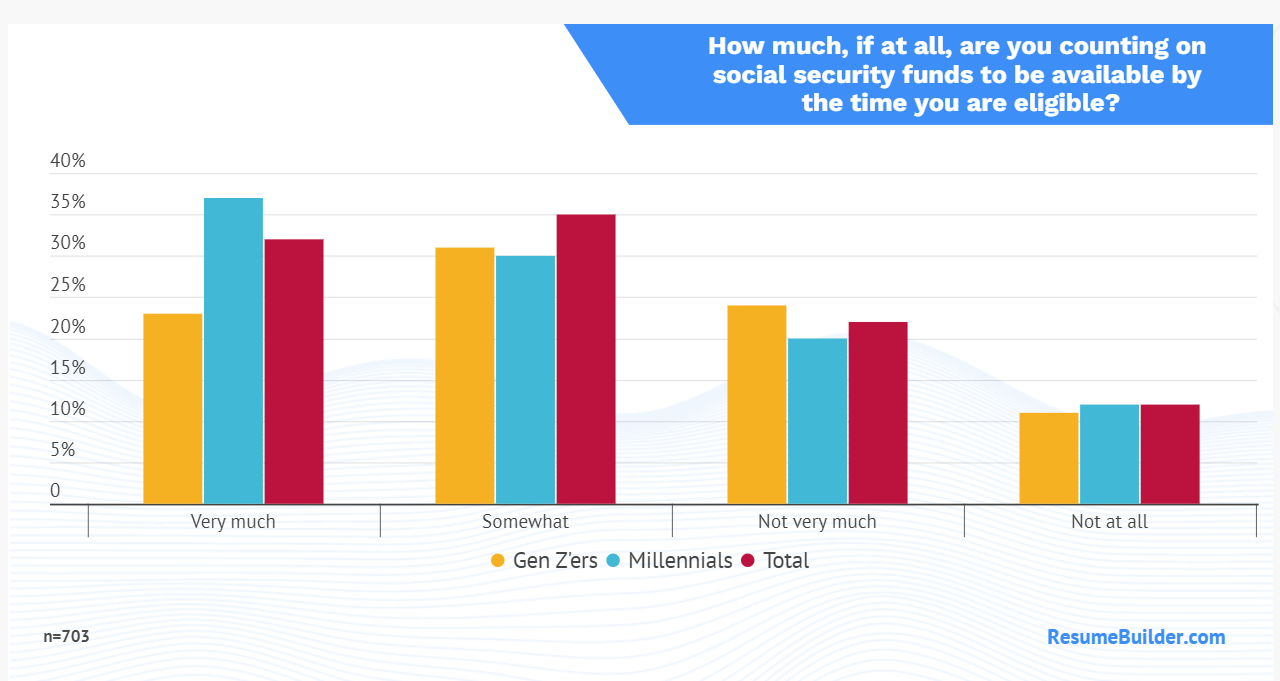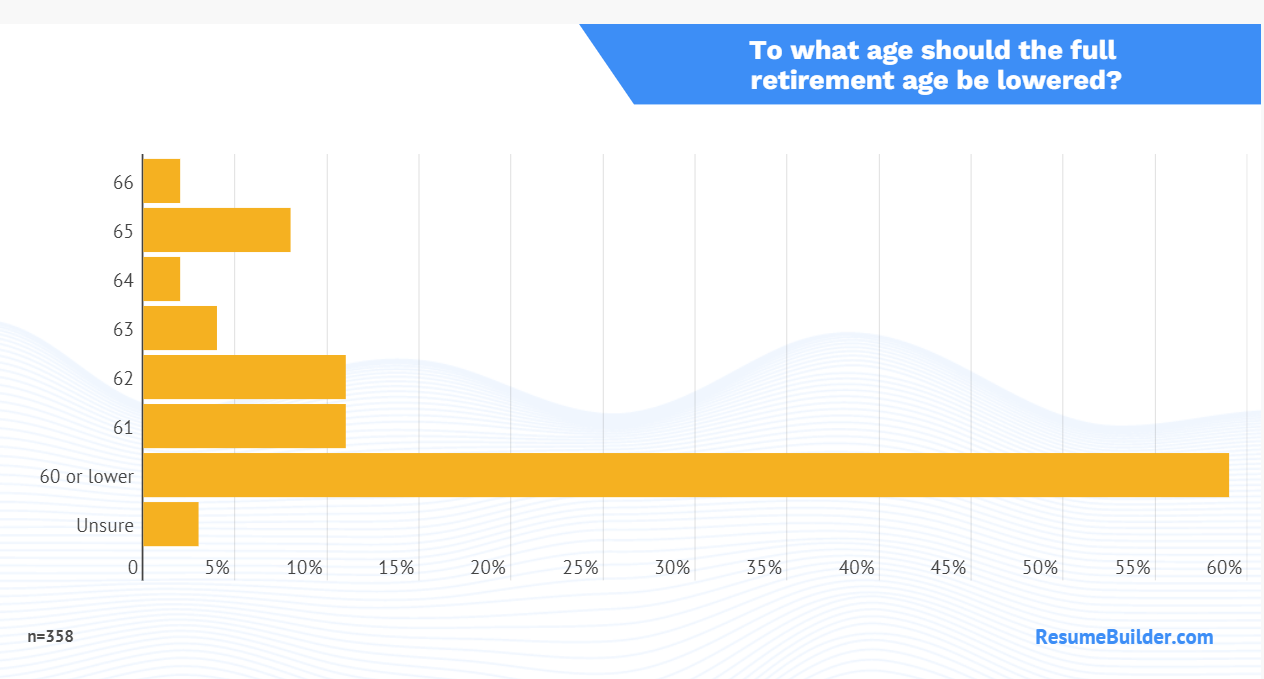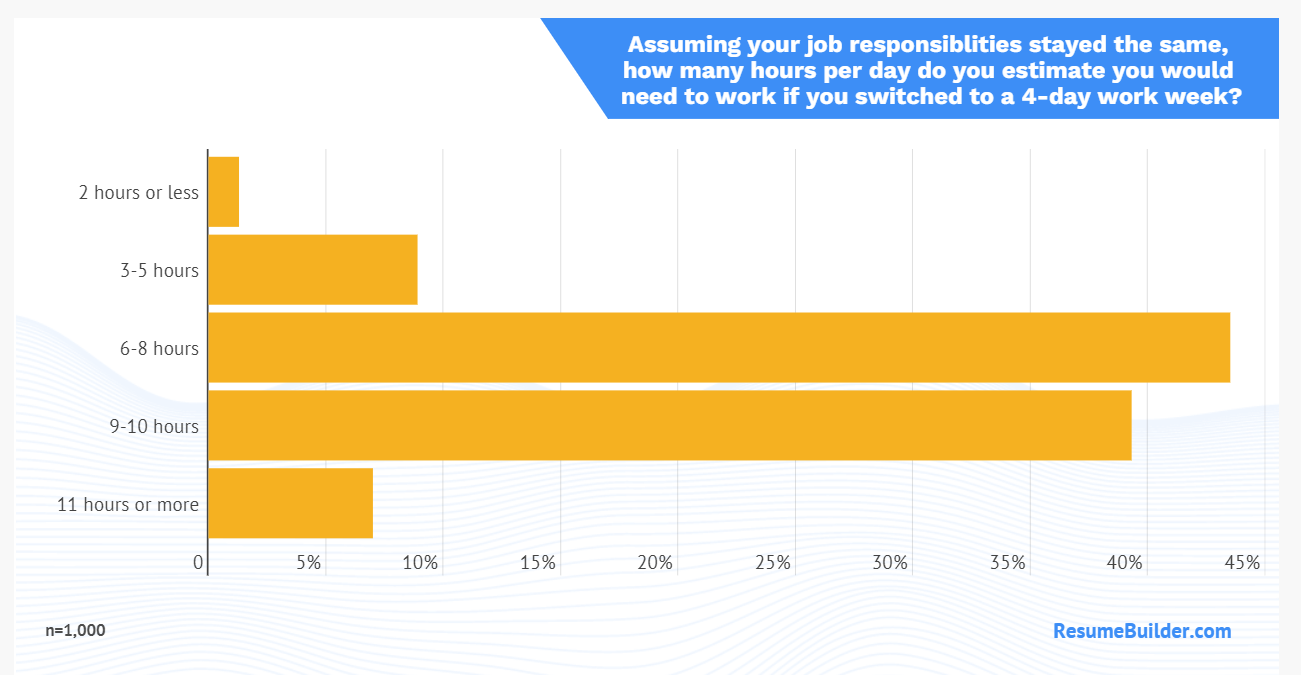
Millennials & Gen Z prefer earlier retirement, ages 22-65 want a 4-day work week
By onBusiness Practices
According to new research from ResumeBuilder.com, 51% of Millennials and Gen Zers want to lower the full retirement age with six out of 10 saying it should be changed to age 60 or younger.
Resume Builder also found that eight in 10 office workers prefer a four-day work week and nearly one-third of companies said they planned to implement the shorter work week by the end of this year.
It’s a path some collision repair centers have already taken, and workers increasingly say they prefer.
Regarding retirement, the current Social Security retirement age varies by birth year and month. Eligibility begins at age 66 except for those born in 1960 or later, including Millennials and Gen Z. They can retire beginning at 67.
Fifty-one percent want the retirement age to be 68 or 69 while 30% said it should be 70-72, and 6% favor age 73 or above. Fifteen percent said they weren’t sure what age it should be changed to. Thirty-four percent said it should stay the same.
More than 700 were surveyed in August, around the same time presidential candidate Nikki Haley proposed raising the retirement age for workers in their 20s according to account for longer life expectancy. However, she didn’t share an exact age. Her suggestion was meant to curb Social Security fund depletion.
Fifty-five percent of respondents said retirement age should be changed for everyone, with 56% favoring a slower rollout for younger generations.
A couple of reasons given for favoring a lower retirement age include more job opportunities for younger workers, which 75% of respondents agreed on, and removing older workers from positions of power (38%).
“I’m not surprised that the majority of Gen Zers and Millennials support lowering the retirement age,” said Julia Toothacre, resumé and career strategist at ResumeBuilder.com. “Gen Z and Millennials tend to focus more on balance and enjoying life than working.
“I’ve seen Millennial values shift throughout the years from being focused on work and promotions to now being more focused on family and having time to live their lives. With Gen Z, I’ve seen the need for balance start much earlier, so it makes sense that they would also be in favor of lowering the social security age.”
Both generations are also doubtful that Social Security funds for their retirement years will be available when they come of age.
This year’s annual Social Security and Medicare trustees report, released in March, warned that Social Security will fall short by 2033 to pay out full benefits to its 66 million retirees.
Forty-one percent said they believe it’s “somewhat” (26%) or “very unlikely” (15%) that funds will be available for them. Conversely, two-thirds say they are still “somewhat” (35%) or “very much” (32%) counting on Social Security to be available to them.
 Reasons respondents selected for why they believe the retirement age should be raised include preventing Social Security funds from running out (47%), preventing Medicare funds from running out (43%), due to longer lifespan (40%), and “punishing” older Americans (9%).
Reasons respondents selected for why they believe the retirement age should be raised include preventing Social Security funds from running out (47%), preventing Medicare funds from running out (43%), due to longer lifespan (40%), and “punishing” older Americans (9%).
“Early retirement exits cannot magically solve the generational tension or gap in the workplace,” Daniel Morris, My Caring Plan founder told ResumeBuilder.com. “Instead, I strongly advocate for fostering environments that encourage intergenerational knowledge sharing.
“It’s about valuing the vitality of youth as much as the wisdom of age. The key is recognizing the value every generation brings and fostering a culture of mutual respect and learning.”
As for a shorter work week, of the 1,000 full-time office workers Resume Builder surveyed in August, 94% said they would be “somewhat” (37%) or “very enthusiastic” (57%) about switching to four days.
A recent study by Fortune found that workers were able to get the same amount of work done in a four-day week as they typically did when they worked five days.
Five percent said they would be “not very enthusiastic” and 1% said they’re “not at all enthusiastic.” The overarching sentiment among the 6% said they would rather spread out their work commitments over a longer period of time.
Thoughts and tips on transitioning to a four-day work week will be covered on Nov. 1 by Tony Adams and Tim Ronak with AkzoNobel Performance Coatings in the Society of Collision Repair Specialists’ (SCRS) Repairer Driven Education (RDE) session track “Changing the World with a 4-day Work Week?” The session is included in the full series pass.
-
- Do employees really want a four-day work week?
- Is your definition of four days and theirs the same?
- What are the downsides to be aware of?
- What do you do with pay?
Images
Featured image credit: Dilok Klaisataporn/iStock
All graphics/charts provided by ResumeBuilder.com.


